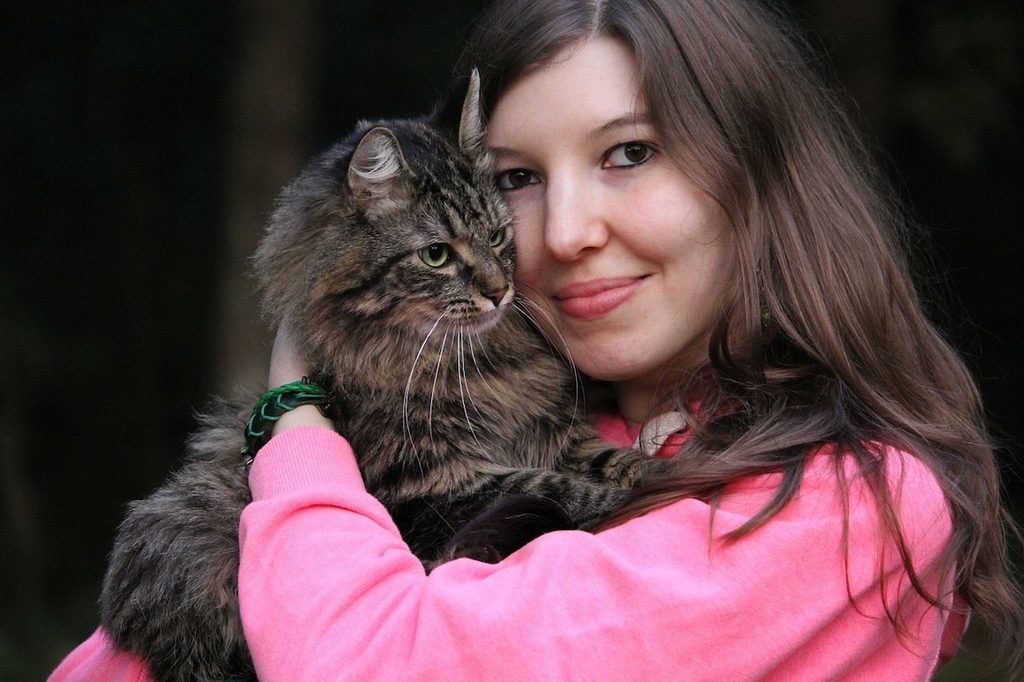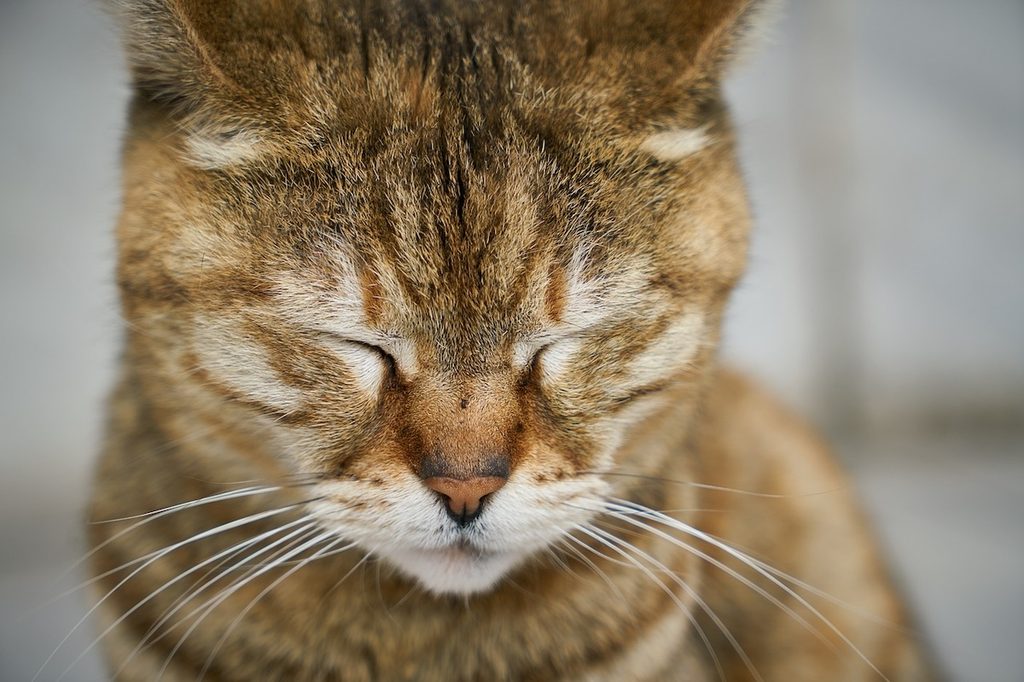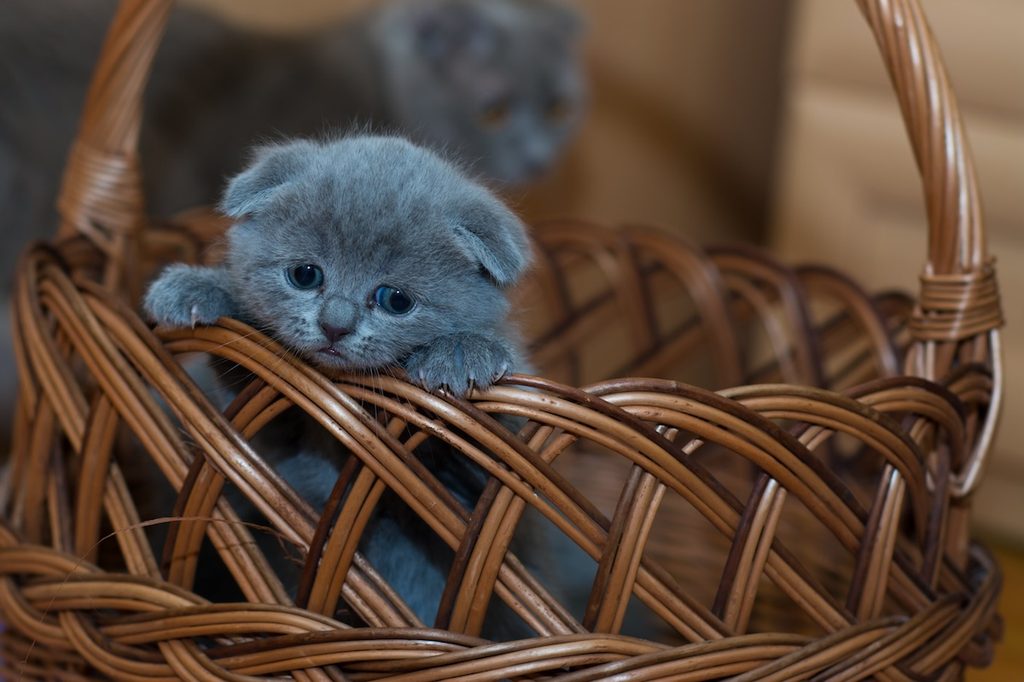
As a pet parent, you probably spend an inordinate amount of time staring deeply into your cat’s eyes. You might even, on occasion, see a few tears and wonder why they’re crying (your own tears over their beauty are par for the course).
It’s true that cats do shed tears from time to time, though the reasons aren’t in line with human ones. So, can cats cry? There are two parts to this question and we’ll tackle each separately.

Can cats cry actual tears?
Yes, a cat’s eyes can water and even look like crying. Note that it doesn’t mean your animal cries tears of emotional pain. Instead, think of this as their eyes watering the same way yours might in the cold or while you’re sick. Similarly to us, cats are prone to allergies, dry eye, and eye infections.
Anytime your pet has a sudden onset of teary crying, you should reach out to the vet. In some cases, the underlying cause can be contagious, and you’ll have to separate them from other beasties you have if necessary. After you have seen the cat doc, you might not need to jump in surprise at the first sign of moisture, provided the diagnosis is something like allergies.
The best news is that many cats can take over-the-counter allergy meds, just talk to your vet about it first. Since kitty tears don’t mean your cat feels sadness, you’ll have to rely on deciphering their “speech” to suss out their inner workings.

Why do cats make crying noises?
As pet parents, we know full well that our pets have strong emotions. They feel happiness, excitement, and even grief. Cats, in particular, have literally hundreds of ways to express themselves vocally, from purrs to hisses to the famous meow.
Sadly, sometimes you might hear your kitty cry in distress. When we say cry here, we don’t mean the watery eyes this time. Instead, we’re talking about your cat whining or yowling at you or other animals. Here is what each sound means.
Yowl
You almost won’t be able to miss this since it’s so pronounced and often quite loud. Sometimes referred to as a caterwaul, this piercing noise showcases your feline’s big feelings. Some species yowl frequently and other individuals break this out for attention. However, novel and more importantly, persistent yowling could mean something’s really wrong. You should take your mouser to the vet when you can’t determine the source of the yowl.
Pitiful meow
When we say pitiful meow, you might instantly hear the sound we’re describing. Sometimes, it seems as though your cat feels depression, and maybe they do. A sad noise on its own doesn’t require action, though you certainly should check in with your animal and make sure everything seems OK. Perhaps give them an extra scratch and then wait for their mood to improve. Remember that hiding from you or skipping meals can indicate stress, which, along with some extra sorrowful meows, could tell you something’s wrong.
Cry
This time, think of the classic cat cry. It’s often more for human attention than anything else and frequently doesn’t designate any signs of distress. There’s one thing that the cry means more than any other: Food. When your kitty gets loud, they are telling you that they are hungry. While these loud noises are not to be ignored, they aren’t generally concerning. Try to placate your kitty’s immediate needs and then tell them to grab a nap.

When should you call the vet about cat crying?
As with so many parts of taking care of an animal, you will probably have to reach out to a professional if you see or hear your cat cry. In the case of the eyes, it will likely just take a few drops or possibly some meds. A vocal cry, on the other hand, could be a sign of a bigger issue, and the feline doctor will know what to check on.
Once you have a good sense of your pet’s individual needs, you won’t have to return to get them checked out every time you hear a new noise. Hopefully, you quickly pick up on the cues and understand when your pet wants food and when they might be in pain or scared. Keep in mind that behaviors can come and go with age and might pop up in the later years for seemingly no reason. While a vet trip is still in order, your cat doctor might diagnose simple old age in an elderly pet.
Next time you see your cat tear up, you’ll know it’s more likely to do with the dust in the house than the tragic romance you have playing. Still, mind your furry friend carefully for other warning signs of pain and angst, like persistent yowling. When in doubt, reach out to your vet.



